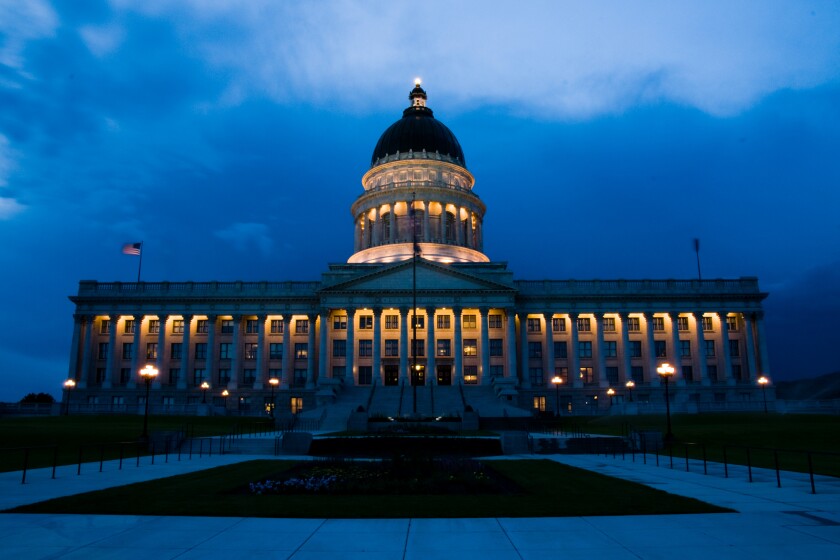Specifically, local public officials, who understand diversity programs better than most because they have been implementing them in one form or another for over half a century, should form a coalition with leaders from the private sector, community and faith-based institutions, and educators. Above all, this coalition needs the active participation of white women, DEI’s biggest beneficiaries, to defend it and help explain its broader benefits to society.
There’s a lot of history here: The Civil Rights Act was passed in 1964, and in 1965 President Lyndon Johnson issued Executive Order 11246 to establish affirmative action requirements for federal contracting. The order was also intended to promote equal opportunity in employment for minorities and women.
Since then a number of closely related programs under the broader heading of diversity, have been developed at all levels of government, in business and in education that go by such names and acronyms as equal opportunity, DEI and MFBE (minority, female business enterprises). I have written extensively here about many of them. Last month Trump revoked several of these programs, including 11246, reflecting the stiff opposition they have faced from conservatives almost from the beginning.
All of this has been particularly disheartening, and supporters and beneficiaries alike wish these programs had achieved more. But the truth is that despite much progress, they have failed to yield the truly level playing field their advocates seek and need. As a whole they have not adequately addressed centuries-old race-based disparities: Black unemployment today is twice that of whites. In 2022, the median wealth of a white family was $285,000; for a Black family it was $44,900. Black infants at birth were more than twice as likely to die as white infants.
Beyond this, we all know that there is still a lot of prejudice and bias in hiring. I recall a white colleague who headed up the engineering department when I worked for an Atlanta-based cable company telling me that he didn’t hire Black people because he couldn’t “read” them: “I can read a white candidate within a couple of minutes, but I can’t read Black candidates, so I don’t hire them.”
Despite attitudes and inequities like these, supporters of diversity in hiring and contracting have had trouble changing the narrative and going on the offense. For one thing, they have failed to get many in the media, or detractors for that matter, to focus on a little-appreciated fact: It is white women who have benefited the most from diversity programs. According to the authors of a 2024 McKinsey & Co. study, white women have come to hold 22 percent of C-suite positions, far outstripping minority women, who hold only 6 percent. But given their silence, you would never know that white women have such a vested interest in these programs’ survival.
There are deeper and perhaps more nuanced reasons why white workers overall should support, or at least not fear, diversity: It has no bearing on their economic position. The precarious financial state many whites find themselves in today began decades ago, when so many factory owners started packing up and moving abroad to exploit cheap labor, devastating U.S. manufacturing employees and their communities. According to the Economic Policy Institute, the global economy has eliminated more than 5 million U.S. manufacturing jobs and nearly 70,000 factories. I can remember in 2008, shortly before I became deputy chief operating officer for the economic development department in DeKalb County, Ga., when General Motors closed its Doraville automobile plant, laying off 1,000 workers. The town has never been the same, and this scenario repeated itself in other places and industries across the nation.
None of this had anything to do with affirmative action or DEI. But as long as whites are told and made to believe that African Americans, minorities and immigrants, rather than the economy, are the main reasons for their adverse financial conditions, they will never understand or fight for the needed changes that would bring job security for them and their families.
We need to help more Americans understand the facts and benefits surrounding diversity’s impact on society. The private sector can be key here. Even as some prominent companies have pre-emptively closed their diversity initiatives, many others, including Apple, Costco and Delta Air Lines, have held firm. They should be enlisted to tell their stories of how diversity has positively impacted their businesses.
Many of them have realized hefty returns on their investments in the form of improved teamwork, better employee satisfaction, accelerated innovation and greater profitability. “Despite a rapidly changing business landscape, the business case for diversity, equity and inclusion (DEI) not only holds, but grows even stronger,” wrote the authors of a 2023 McKinsey report.
Gaining the vocal support of employers who have benefited from their own diversity initiatives is one way local officials can begin the process of leading us out of this dark and scary forest where racism has been normalized and is being rewarded. Many of them have been fighting a long time for diversity, equity and inclusion, and the gains they’ve won are now at risk of being systematically rolled back. We must resist this — not for the sake of Black people or other minority groups or women alone, but for the broader betterment of society. DEI has benefited all of us, and it is about time that we admit it, defend it and act like it.
Governing’s opinion columns reflect the views of their authors and not necessarily those of Governing’s editors or management.
Related Articles














